
Emmanuel Macron has a grand vision for the West. Putin has exposed the limits of his influence
The next day, Putin declared two regions of Ukraine as independent and by the end of the week had sent troops into the country.
Ever since the crisis began, Macron has assumed the role of Europe's statesman, willing to talk face-to-face and on the phone multiple times with Putin in a way that other world leaders would be either unwilling or, Macron's supporters believe, unable to do.
Critics might argue that Macron's indulgence legitimizes a man that Biden has described as a war criminal, but his allies say that, at the very least, keeping the line open to Moscow eliminates any claim Putin could make that he'd been isolated and had no diplomatic alternative other than invasion.
This is far from the first time Macron has played the part of Europe's spiritual leader. He took the lead on dealing with former US President Donald Trump during some of the most difficult moments of his time in office. He also set many of the European Union's red lines during Brexit negotiations with the UK. He has hosted talks in Paris for rival groups in Libya in order to host a ceasefire. And during the early days of the Covid-19 pandemic, he tried to broker a world truce.
Macron is a man who sees himself and France as a force for good on the world stage. And though his interventions often don't live up to expectations -- Trump pulled out of the Iran nuclear deal and Paris climate accord; Putin invaded Ukraine -- the statesman persona plays well with French domestic audiences. All of which helps Macron as he fights for reelection this month.
The war has cast a shadow over the French presidential election campaign, the first round of which takes place on April 10. Macron's most likely opponent in the second round, the far-right Marine Le Pen, has had to address her past ties to Russia, which include financial support from Russian banks.
If Macron does secure a second term, it's likely he will want to continue and go further in his role as Europe's political and moral guide.
He has hardly been shy in the past about his grand vision for the future of the European Union -- and how he sees France sitting at the center of the project.
When he addressed the audience at his victory rally after winning election on May 7 2017, Macron promised not only to lead France, but also to provide stable leadership for the whole of the continent at a time of uncertainty.
After arriving at the rally accompanied by the tune of Beethoven's "Ode to Joy," the EU's anthem, Macron told the crowd he would "defend Europe."
"Our civilization is at stake, our way of living, of being free, of promoting our values, our common enterprises and our hopes," Macron said.
Back then, the biggest threat to Europe was Brexit. The practicalities, implications and consequences of a member state leaving the EU were not fully known, and although the EU remained united throughout the process, the negotiations involving Britain's departure from the bloc would practically bring the business of Brussels to a halt for the best part of four years. Macron, however, saw an opportunity to revitalize and strengthen the EU without the UK.
In September 2017, his presidency still in its infancy, Macron delivered a speech in which he laid out his vision of a "sovereign Europe." Macron wanted to reform and rebuild the bloc in a way that bound the EU closer than ever, including having a joint intervention force and defense budget, as well as the means "to effectively control our borders" and using economic incentives to "bring our social and fiscal models closer together."
Not everyone agreed with him. Sophie Pedder, Paris bureau chief for the Economist and author of "Revolution Française: Emmanuel Macron and the Quest to Reinvent a Nation," said that at the time it felt as though Macron was "calling out into a void," as the rest of Europe struggled to get its head around the French President's grand vision.
"Macron made this quite complicated plea for European sovereignty and there was silence from Germany, which had just had an election and it wasn't clear what the resulting government would look like," Pedder told CNN.
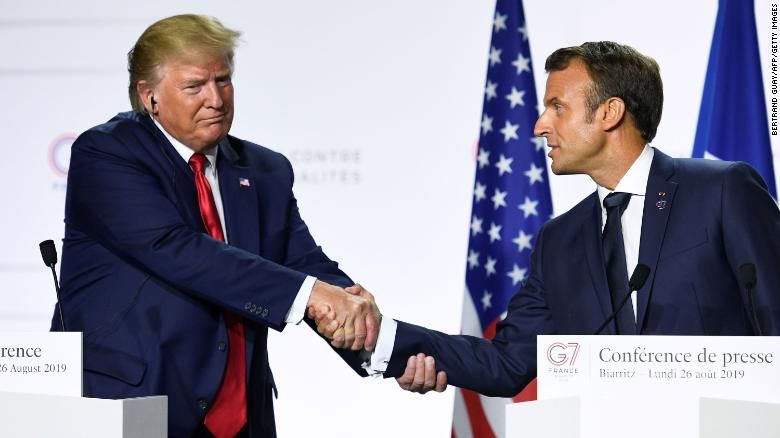
The French President has since struggled to build a consensus around his reimagined vision for Europe, according to Gerard Araud told CNN, who served as Macron's ambassador to the US from 2017 to 2019.
"Every country in the EU has a vision of what Europe should be, and in most cases it's a projection of its own state. For the Germans, it's a more administrative center in a federal system. For France, it's a centralized state with a flag and an army," he said.
At various points over the past five years, several EU diplomats and officials have talked of a broad frustration at Macron's single-mindedness. He irritated other member states at times with his hard line on Brexit and annoyed the more security-minded member states by talking of the "brain death" of NATO and calling for a European army. This turned off other member states and left many of his pleas for a more centralized Europe falling on deaf ears.
"He wanted big reform but found himself isolated," Philippe Marlière, professor of French and European politics at University College London, told CNN.
"A combination of his pushing too hard, Brexit jamming everything up and the early stages of the pandemic putting all governments in crisis mode, the political conditions were just not there for Macron to build a coalition around his grand vision," Marlière added.
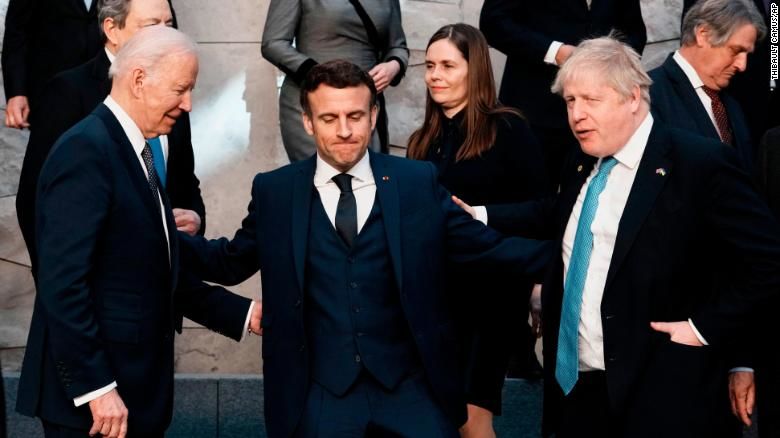
But as polls show Macron is the favorite to secure another five years in power, Europe is in even greater need of direction than in 2017. The war in Ukraine has fundamentally changed European attitudes to security spending and underscored Europe's over-reliance on Russian energy.
It has also reminded those opposed to Putin -- both inside and outside the EU -- of the importance of remaining united in the face of an adversary. For that unity and focus to remain, Europe needs someone who is willing to provide that political leadership and take others with them.
In theory, the French President should be well placed to take this job. The question is: Does he have the personal and political attributes to persuade allies to follow.
Pedder points out that, while Macron may not have pulled off the huge reform he once sought, he has nudged EU partners somewhat nearer to the type of Europe he wants when it comes to certain issues.
"When taken as a whole, Europe's response to the pandemic has seen some extraordinary shifts in how the union is willing to operate. He got Germany and the frugal states on board with a common recovery and borrowing plan by agreeing to jointly guarantee each other's debt," she said.
Following the invasion of Ukraine, Pedder also noted the dramatic increase in defense spending across the EU -- including by Germany. "Others are coming around to Macron's view of Europe. He might not have got the solid reforms he wanted, but tonally, I think he'd be surprised at how far things have come since 2017."
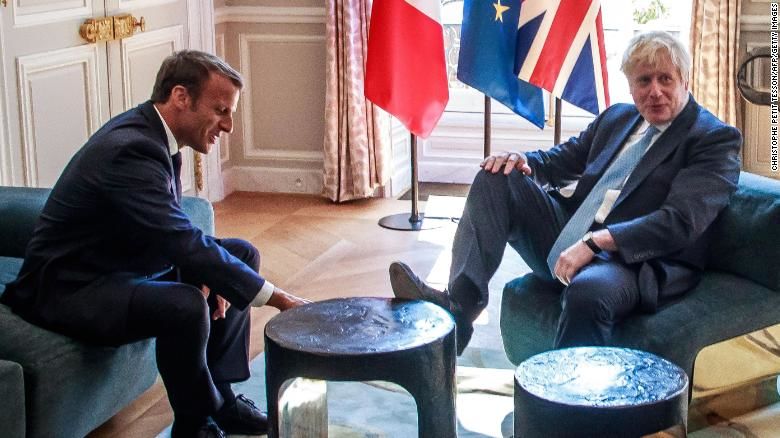
In theory, the conditions are there for Macron to build on the foundations of the pandemic and the war. However, in order to do that he must overcome obstacles that could have been tailor-made to frustrate him.
Europe is thinking seriously about defense again -- one of Macron's favorite topics. But it is doing so through the medium of NATO.
"NATO is back. There will be no European replacement and any common EU defense strategy will have to be coordinated with NATO," said Araud. "There is just no longer a space for something new, which Macron thought there would be in 2017."
And Macron is better placed than many Western allies to speak with Putin. France, while a NATO member, has long favored a more autonomous foreign policy, often attempting to play the role of broker between Europe and other world leaders.
During the Trump years, Macron seemed to embrace the US President in the hope he could persuade him against pulling out of both the Paris climate treaty and Iran nuclear deal, assuming the role as figurehead of common sense. He was left empty-handed on both issues.
However, on Ukraine he could find himself criticized by Western allies and struggle to gain the trust of his European neighbors.
"Will he have credibility if Putin is tried for war crimes? He hasn't been the most vocal or critical voice in the West and historically has wanted a hybrid relationship with Russia," said Marlière, who also noted that Macron has been "conservative about what weapons to send to Ukraine" and that French companies have "stayed put in Russia, presumably with some sort of government support."
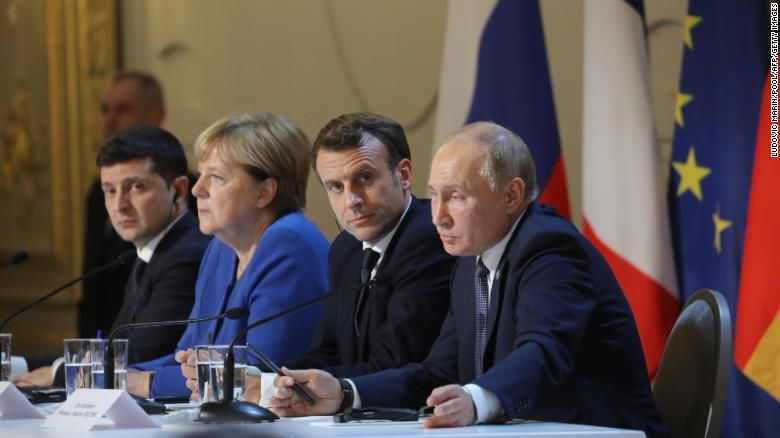
And if Europe is to make progress on issues like the green agenda, reducing reliance on Russian gas and more secure supply chains, the blunt truth is that the UK-EU relationship needs urgent repair.
Few see Macron as the person to do this, as he has been the most vocal EU leader against Brexit. And despite having a friendly manner with Boris Johnson in person, diplomats who worked throughout the Brexit negotiations say that the two are eerily similar: extremely competitive, care more about personal victory over one another than compromise and, at times, reckless.
In other words, they are almost always on a collision course.
Marie Toussaint, a French Green Member of the European Parliament, believes that Macron lacks the political or diplomatic skills to navigate the challenges ahead.
"Ukraine has made the fundamental question of what will Europe be in the future more pressing. Do we want the status quo? Do we want to be only -- or to what degree -- a united military power? Do we want to be truly federalist? Based on his failure to implement a proper green transition in France, I don't believe Macron has the answer to any of these big European questions."
But his supporters counter that Macron has changed the conversation sufficiently that he is perfectly positioned to lead Europe through its next phase.
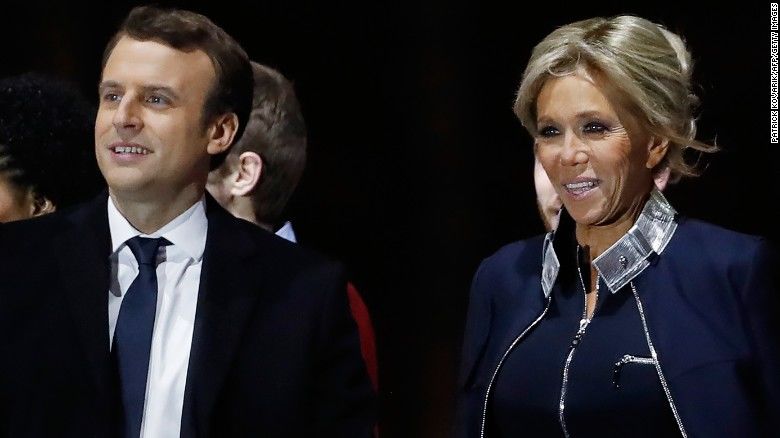
Marie-Pierre Vedrenne, a French MEP, says that "European sovereignty was Emmanuel Macron's commitment in 2017. We were considered alone and fools.
Now, this is an objective shared by all Europeans and we are concretely working on it," adding that the crises of Covid and Ukraine "have given a new impetus to the EU integration, reminding us the necessity to build a more sovereign, democratic and united Europe."
The past couple of decades have been very hard on Europe. From the financial crisis to Brexit and then the pandemic, both EU and non-EU countries made decisions to work more closely with countries like China and Russia, downgraded their own security on the assumption of the US NATO blanket and bickered over migration to such an extent that opponents could weaponize the issue of refugees. In other words, Europe made itself vulnerable.
The tragedy unfolding in Ukraine has pulled Europeans — and their Western partners — into the same place for the first time in years. Just as the crisis of Brexit coincided with Macron's first electoral victory, the fact that Ukraine is happening during his second campaign is nothing more than chance.
But for a man who likes to talk about Europe's destiny and, for better or worse, sees himself and his country as the beating heart of Europe, the crisis -- once again -- might have created the perfect opportunity for Macron to take on this pivotal role.










